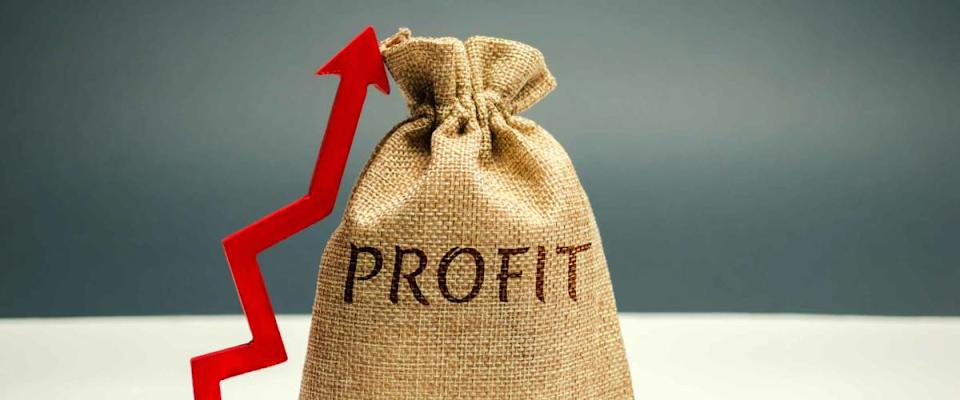Pressure mounts on auto insurers to give you a COVID 'stimulus check'

With President Joe Biden's relief bill signed, sealed and more than 80 million $1,400 stimulus checks now delivered, consumer advocates and state regulators have been putting renewed pressure on auto insurance companies to give out some more COVID stimulus cash of their own.
And some providers have signalled that they’re willing to do so.
So if you've been wondering why you're paying full price for insurance while your car still mostly sits in the driveway, read on for ways to get more relief from your insurer, plus a few other strategies to slash your car insurance bill when money is tight.
Insurers profit from less driving

Throughout the pandemic, restrictions on business activity and other parts of normal daily life have caused overall driving to drop well below pre-COVID levels, according to the U.S. Bureau of Transportation Statistics.
And that has meant big increases in profits for auto insurers, according to research by consumer advocates. Progressive reported an 82% increase in net income, while Geico’s pretax earnings tripled during the second and third quarters of 2020, just to name a couple.
The American Property Casualty Insurance Association has said that, in recognition of the situation, insurance providers gave out more than $14 billion in refunds and credits to policyholders over 2020.
But, in March, California’s insurance commissioner ordered providers to extend more discounts to auto policyholders, saying companies have “continued to overcharge drivers” during the pandemic.
And in a set of class-action lawsuits filed in Nevada in February, plaintiffs claim that 10 leading auto insurers have kept premiums unreasonably high during the pandemic.
In response to the California ruling, State Farm has already promised to give $400 in rebates and discounts to its customers in the state, citing lower claim rates in the latter half of 2020.
A long-simmering dispute

The fight for auto insurance relief has been raging for months.
In December 2020, the Consumer Federation of America and the Center for Economic Justice sent a public letter to state insurance commissioners, saying auto insurers should be required to deliver a new round of refunds to policyholders.
An analysis by the two groups showed crashes down 31% since the beginning of the pandemic compared to the year prior.
The Nevada lawsuits — which name as defendants State Farm, USAA, Geico, Acuity, Liberty Mutual, Farmers, Progressive, Travelers, Nationwide and Allstate — contend that the trend has continued into 2021.
So can I get free money from my insurance company?

An analysis by the U.S. Public Interest Research Group Education Fund took a state-by-state look at how insurance companies repaid parked motorists last spring.
“Regardless how much each company profited, the majority of insurers didn’t give back more than half of one month’s premium,” the consumer watchdog says.
But some companies didn’t issue refunds or cut rates unless customers called and asked.
That means you could get free cash just by contacting your insurance agent. With pressure mounting, your insurer might be open to reviewing your premium, assuming you’re still driving less than ever. Make note of how your habits have changed, such as the distance you’re not driving while you work from home.
Other ways to shrink your premiums, starting today

If your insurance company won’t give you a pandemic discount, there are still a number of ways to cut down on your insurance bill.
Drop optional coverage
Some auto insurance policies include extras that you may be able to do without for a while. For example, can you cut out the option that pays for a rental car while yours is at the repair shop?
Removing these extras can save you a few bucks, just make sure you’re still meeting your state’s minimum liability coverage and are still protected in case of an accident during those few trips to the grocery store.
Switching insurance providers
If your insurer won’t give you a break, maybe you can find a new one that will.
Even if you can’t switch to a company with pandemic discounts, shopping around for the best rate can still help you lower your bill.
If you haven’t comparison-shopped over the last six months, you could be wasting more than $1,000 per year. With a free quote-comparing service, you could find the best price in minutes.
Raise your deductible
If the risks of a claim are lower, you may consider raising your deductible — that’s the amount you pay out of pocket on a claim before your insurer takes care of the rest.
A higher deductible will save you money on monthly premiums, but it could lead to more costs if you do end up in an accident.
Suspend your car insurance
In some cases it may be possible to put your insurance on hold if you’ve completely stopped driving during the pandemic.
This path could be tricky — it could result in fines or a suspended registration from the DMV, and it may not be possible at all if you’re making car payments to the bank.
You’ll also need to store your vehicle in a safe and secure spot, because you won’t have coverage from nondriving-related losses, like theft.
What if I need even more savings?

If saving on car nsurance isn’t enough, here are a few more ways to give your bank account a boost until the economy bounces all the way back.
Slash your other insurance bills. By doing some simple comparison shopping using online tools, you can save hundreds on your homeowners insurance and get an instant life insurance quote.
Invest your spare change. Using a popular investing app you can automatically accumulate “change” every time you use your debit card and let the app invest the money for you in a diversified portfolio of stocks, bonds and other reliable investments. You won't even notice the deposits, but you will notice the returns.
Cut the cost of your debt. If you’ve been relying on credit cards throughout the pandemic, expensive interest is bound to catch up with you. A lower-interest debt consolidation loan can fold your balances into a single, lower-interest payment — and help you find freedom from your debt sooner.

 Yahoo Finance
Yahoo Finance 